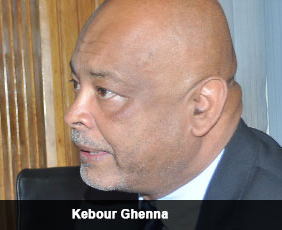Conference focuses on improving early grade reading
 Addis Ababa, Ethiopia – A conference on the theme “Early Grade Reading: A grand challenge for quality education in Ethiopia, the role of public private partnership†was held on Friday June 27th at Siyonat Hotel.Â
Addis Ababa, Ethiopia – A conference on the theme “Early Grade Reading: A grand challenge for quality education in Ethiopia, the role of public private partnership†was held on Friday June 27th at Siyonat Hotel.Â
It brought education leaders, policy makers, learning institutions, civil society organizations and non-governmental organizations (NGOs) together to discus sustainable actions to improve early grade reading skills of children and ensure quality education with positive development impacts.
An experience sharing session was also held between those present and Initiative Africa, which has been implementing the All Children Reading (ACR) project since 2013. This project was launched in 2011 by the US Agency for International Development (USAID), the Australian Agency for International Development (AusAID), and World Vision.
“Our work helped us to realize that in order to improve learning outcomes you must increase teacher effectiveness and strengthen classroom and school management. This is a logical statement; students learn more from good teachers in well-run, well-equipped schools,†said Kebour Ghenna, Executive Director of Initiative Africa in his opening speech.Â
“We also realized that there is no need to start from scratch in order to do this. There are pockets of excellence and signs of promise in many schools. And if you can harness those successes, support and develop them and expand them further, then you can make a difference in the whole system,†he added.
Evaluating the potential of National testing results to improve reading performance, developing the capacity of teachers to use action research to improve their practice, evaluating the effect of using action research on student’s reading performance and improving access to reading and learning materials for teachers and students are some of the ACR project objectives.
“Contracting with non-state actors such as NGOs, community-based organizations, faith-based organizations, and formal and informal non-state enterprises in the delivery of educational services can improve efficiency in delivery, expand service coverage and mobilize financial resources to meet pressing public service needs,†Kebour further stated.
According to the 2010 Ethiopian Early Grade Reading Assessment and 2012 National Learning Assessment, students’ reading achievement in Ethiopia remains very worrying. The studies show that students are not learning at the level expected, indicating very low oral reading fluency levels and for the most part, extremely low comprehension.Â
To better the situation, the Ministry of Education has had emphasized literacy and basic math as key intervention areas in its fourth Education Sector Development Plan. The Ministry is trying to address the situation through the revision of curriculum’s and teacher development programs. It has also encouraged the involvement of the private sector and individuals to invest in education at the pre-school level.
Source: Capital



